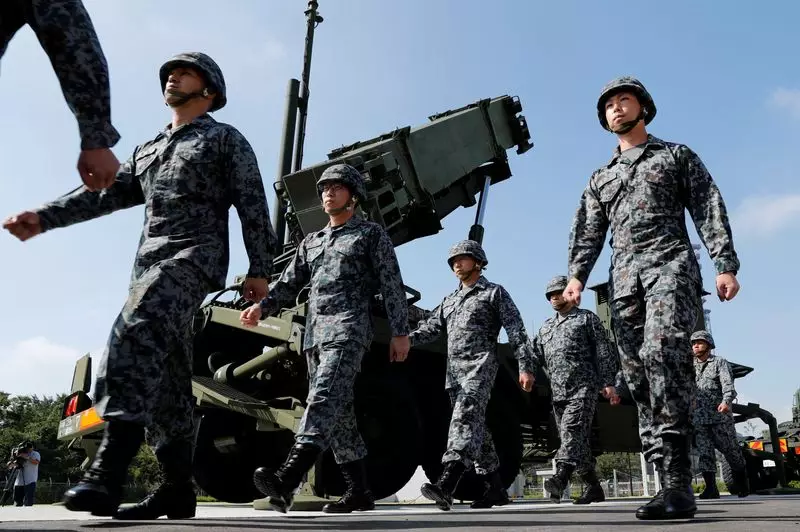The plan to use Japanese factories to increase the production of Patriot air defense missiles, which are crucial for Ukraine to defend against Russian attacks, is facing delays due to a shortage of a critical component manufactured by Boeing. The production snag in Japan highlights the challenges faced by Washington in integrating industrial support from global allies into its intricate supply chains.
Japan’s Mitsubishi Heavy Industries (MHI) currently produces about 30 PAC-3 missiles annually under license from Lockheed Martin and has the capacity to increase it to 60 missiles per year. However, the shortage of seekers, essential components that guide the missiles in the final stages of flight, is hindering any further expansion in production in Japan. This shortage could potentially take several years to resolve, restricting the ability to scale up output.
Even if an adequate supply of seekers becomes available, expanding the annual production of PAC-3 missiles in Japan beyond 60 would necessitate MHI to invest in building additional capacity. The costs associated with establishing a new PAC-3 factory could amount to tens of millions of dollars or more, posing a financial challenge for both MHI and the United States. Japan’s government has expressed willingness to provide financial aid to defense companies looking to expand production, but these subsidies are restricted to equipment designated for the country’s Self Defense Forces and not exports.
The United States, in collaboration with its allies, is embarking on a plan to increase the production of both missiles and seekers, with a $4.5 billion contract signed with the U.S. Army marking the commencement of this ramp-up. The U.S. and Japan are prioritizing deepening industrial cooperation on defense, with the Patriot project forming a critical component of this effort.
Supply chain bottlenecks pose a challenge to U.S. efforts to meet Ukraine’s demand for munitions, particularly air defense systems to counter Russian attacks. The geopolitical significance of enhancing military industrial ties with Japan is underscored by the aim to strengthen strategic capabilities in the Indo-Pacific region. The need for increased readiness and deterrence in the region has been emphasized, particularly in light of the ongoing conflicts in the Middle East and Ukraine.
Japan’s decision to ease military export rules in December 2023 to support the replenishment of U.S. Patriot missile stocks used in Ukraine was hailed as a significant step. The deepening defense industry cooperation between the United States and Japan, endorsed by President Joe Biden and Prime Minister Fumio Kishida, underscores the mutual commitment to bolstering regional defense capabilities. U.S. Ambassador to Japan, Rahm Emanuel, has been instrumental in advocating for stronger military industrial ties to alleviate pressure on U.S. defense contractors.
The challenges encountered in boosting the production of Patriot missile components in Japan highlight the intricacies of international defense collaboration. Overcoming supply chain constraints, addressing component shortages, and navigating cost and capacity limitations are essential to enhancing regional defense preparedness and strategic deterrence. The commitment of allies like the United States and Japan to deepen industrial cooperation underscores the shared objective of bolstering defense capabilities and promoting regional stability.

